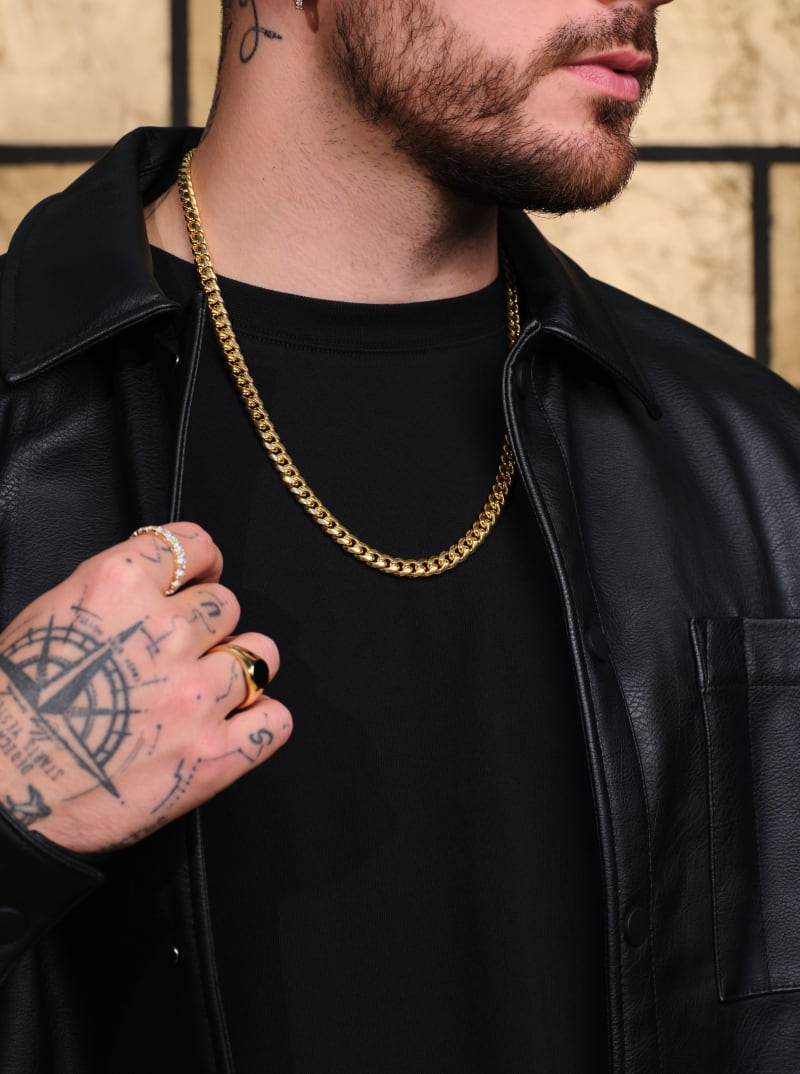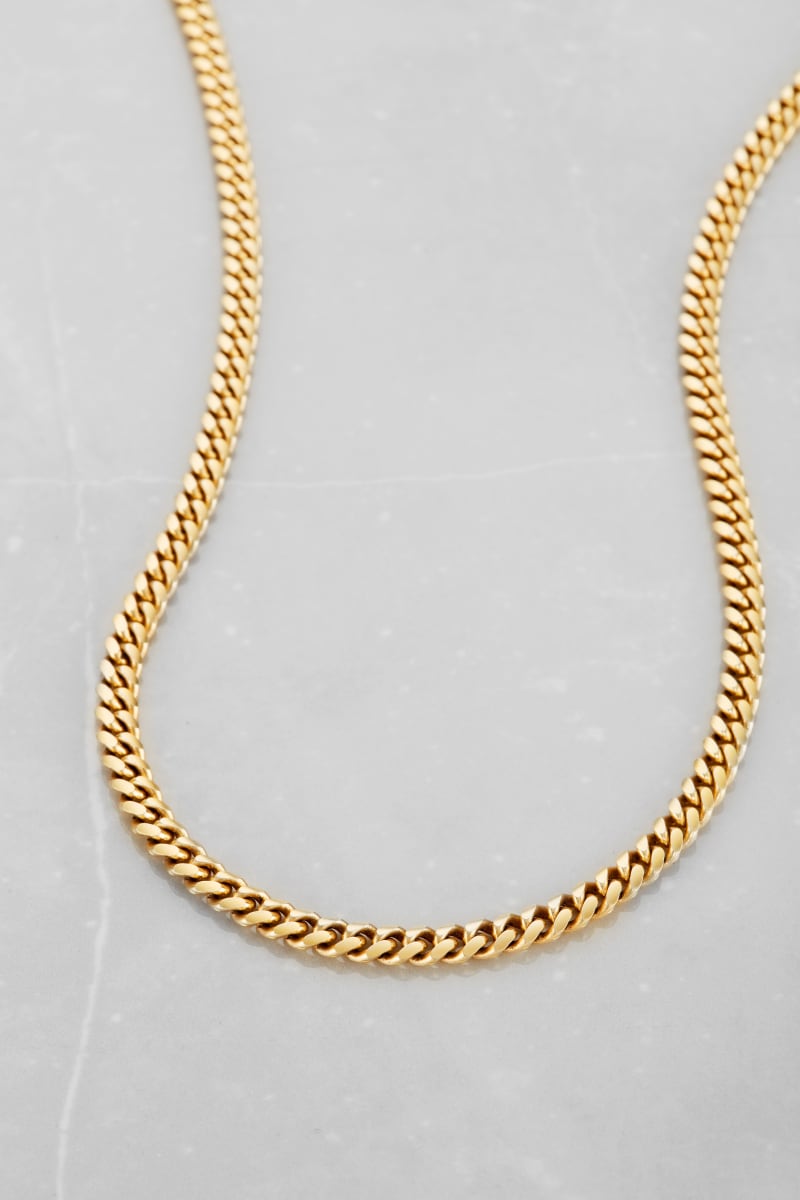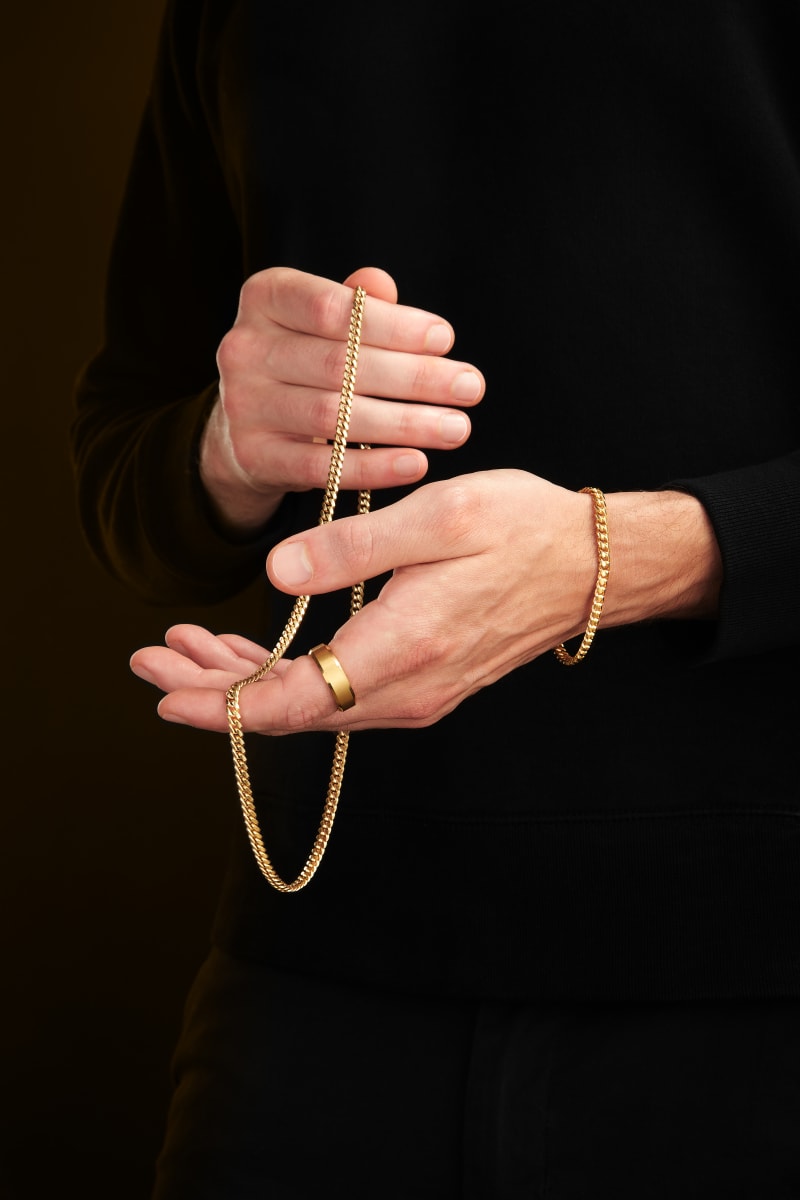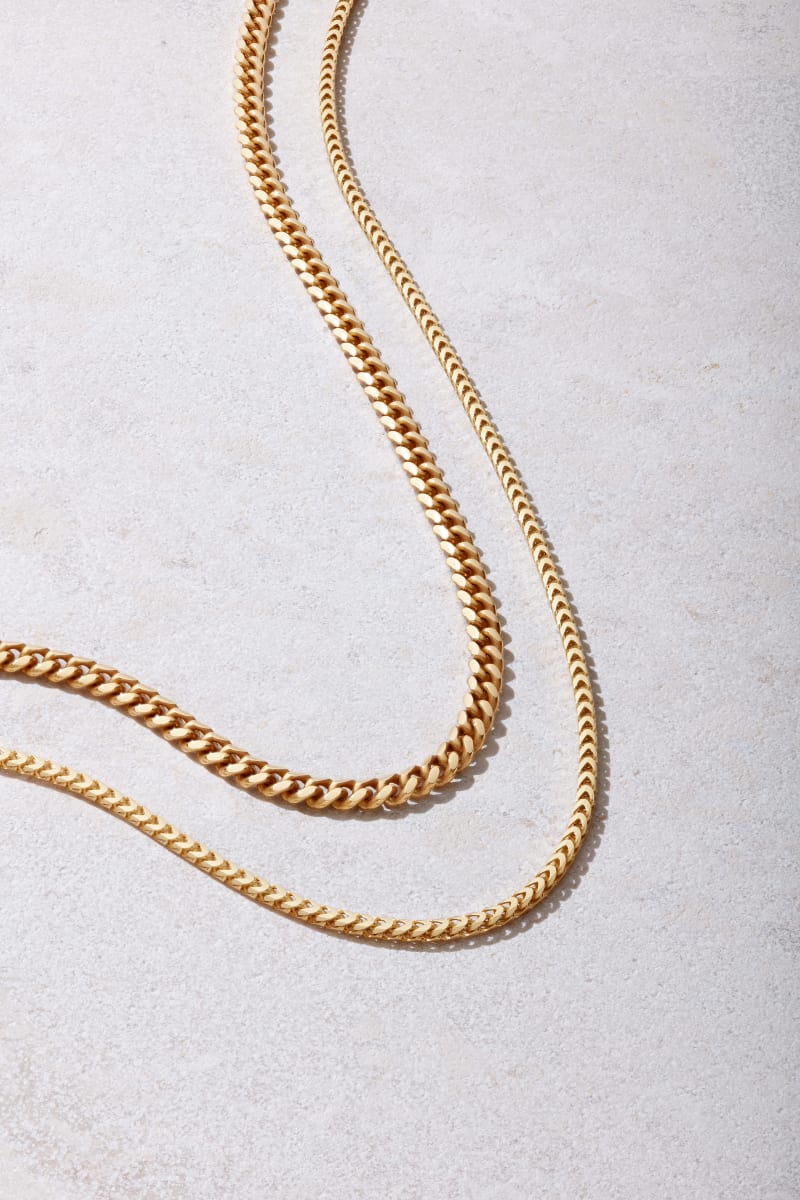To the uninitiated, gold jewelry appears to be largely the same across the board. It gleams, it shines, it turns heads wherever you go – what else is there to know?
As it turns out, there’s so much more to gold jewelry than meets the eye, and karat is a big part of the conversation when it comes to production, price, quality, characteristics, and more.
Today we’re talking about two of the more popular types of gold jewelry on the market today, 14K and 18K gold. We’ll get into key points like composition and physical properties and then compare the two side by side so that you make the best choice for your collection. Let’s begin exploring 14K vs 18K gold.
Basics of Gold Karat
It’s a concept you need to get straight when stepping foot into the world of gold jewelry. Karat is simply a measure of the fineness – also known as the purity or percentage – of pure gold in a particular piece, whether it’s a delicate bracelet, a wedding ring, or a massive link chain. Knowing the karat of a piece will give you insight into the composition of the piece, understand what goes into its production, and help you determine if you’re paying a fair price.
Here are some more details about karat and how it informs our comparison of 14K and 18K gold.
Pure Gold vs. Gold Alloy
Karat is so important to understand because very little jewelry is actually pure gold. Instead, most pieces are formed from an alloy, or combination, of fine gold and various other natural metals, including copper, silver, nickel, and zinc.
Why not just make jewelry from pure gold, you ask? The first problem is price. Pure gold is so expensive that this would make gold jewelry unattainable for most people.
There’s also the issue of durability and longevity. Pure gold is a comparatively soft precious metal, and if you’re wearing pure gold jewelry every day, it will quickly show signs of wear and tear. Alloys are a way to toughen up the final product and make it more accessible to the masses!
14K Gold Explained
We have an idea of what karat goldmeans, but where do these numbers come into play? With karat, it’s all about pieces of a whole, with 24K goldbeing equivalent to 100% pure gold.
Knowing that, true 14K gold jewelry would be comprised of 14 parts real gold, with the remaining ten parts coming from alloyed metals we mentioned earlier. As a percentage, this gives us about 58.3% real gold purity. Not bad!
Because 14K gold offers a reasonable amount of pure gold and a range of a variety of colors besides yellow gold, like 14K white gold and rose gold (depending on the alloys), it’s the most popular type in the United States, especially for engagement and wedding rings.
18K Gold Explained
You can probably piece together the meaning of 18K gold based on what we’ve discussed so far.
This type of gold contains 18 parts pure gold, with the remaining six parts comprised of familiar alloys. As a percentage, this equates to a clean 75% pure gold composition.
18K gold jewelry tends to be more popular in Europe and Asia, so you might not be able to find as many options in the US. With that in mind, always shop with caution when buying online, especially from sources overseas.
14K and 18K Compared
With the basics out of the way, it’s now time for our head-to-head comparison of 14K and 18K gold. We’ll look at three key categories and tell you the facts on each one. Let’s go!
Appearance
You might not be able to detect significant visual differences between 14K and 18K jewelry at first, but with a closer look, you’ll see some subtle distinctions.
For example, a 14K gold chain will typically be described as “warmer” and “duller” in terms of color and shine, while an 18K gold one will be known for a brighter, lighter, and more radiant appearance.
When it comes to white and rose gold variants, the colors of 14K gold will be a bit more muted, while the 18K versions will be more brilliant and shiny.
Again, these are minor differences that may not jump out at you right away, but they’re worth acknowledging in a side-by-side showdown.
Durability
Gold alloys are notoriously tough, and which is why so many wedding bands and engagement rings, bracelets, and necklaces can be found with 14K and 18K gold compositions.
However, in a duel of durability, 14K wins out due to its higher percentage of solid metals compared to the 18K alternatives. A 14K gold jewelry piecebenefits from better scratch resistance and is less likely to suffer from dents or chips.
If you or your partner leads an active lifestyle and wants to wear that ring 24/7, it might be a wiser move to go for 14K!
Value
If you’re wondering, “how much does a gold chain cost?”, or “what’s the average price point of a gold bracelet?”, the karat plays a role in this as well. Whether it’s 10K vs 14K gold or 14K vs 18K, the amount of pure gold in a jewelry piece will determine the price of it. It’s no surprise to find that 18K gold has a higher price point than 14K, but what’s the real price difference here?
In a survey of gold jewelry pieces on the market today, we found that 18K engagement rings typically cost between 150% and 200% more than 14K rings – no small change.
This could be the make or break factor when you’re shopping for your next piece of gold jewelry, so always weigh those pros and cons with the price you can expect to pay.
Remember, the jewelry itself is only part of the picture when it comes to the total cost. Make sure you’re getting top-tier service, support, and other customer benefits when buying in-person or online. This is an investment worth protecting, no matter what you choose!
Conclusion
Like all things in the world of jewelry and beyond, choosing between 14K vs 18K gold comes down to a game of tradeoffs. Use our guide to make the best pick for your needs and enjoy your new jewelry no matter what.




